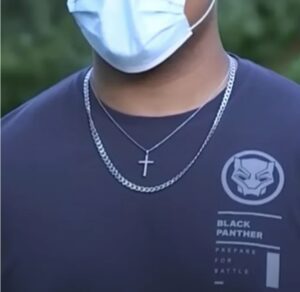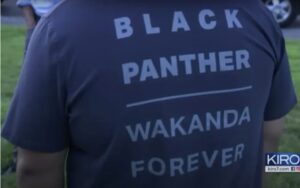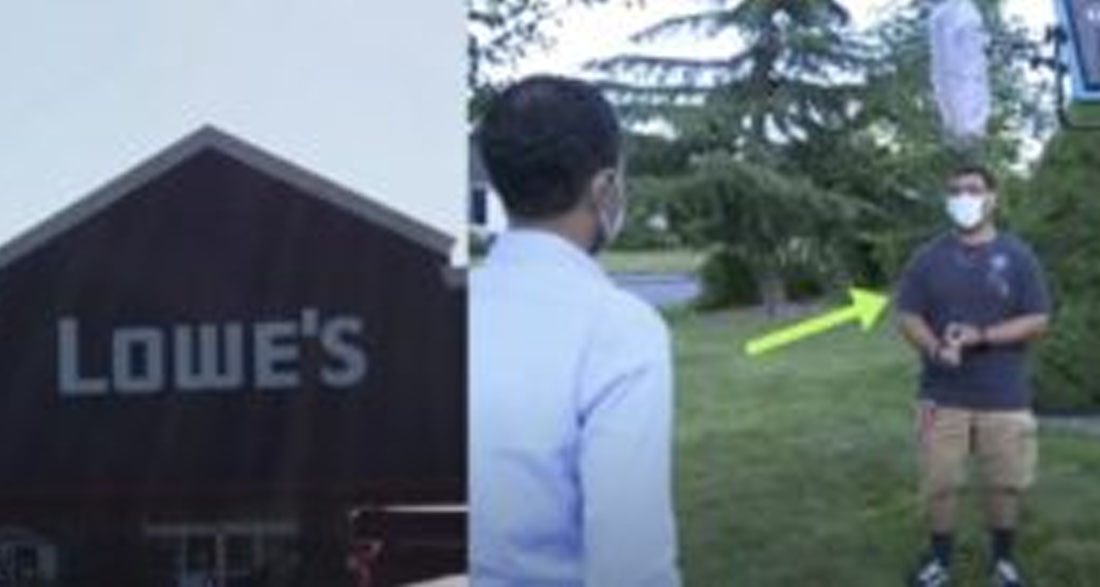In Washington, a teenager named Kyle Sales was working hard at his job at Lowe’s, hoping to save money before starting college. He loved wearing his t-shirt that boldly declared “Black Panther Wakanda Forever,” a fun nod to the blockbuster superhero film that inspired so many. But one day, everything changed when a customer decided to complain about his shirt.
Kyle was in the middle of his shift when his supervisor approached him with a serious expression. “A customer said your shirt is offensive and racist,” she stated firmly. Kyle felt his heart drop.

“This is from a movie! How is this racist?” he asked, bewildered by the accusation. The shirt meant a lot to him, representing pride and empowerment, not hate.
But his supervisor didn’t seem to care. She told him he had two choices: either change into a different shirt or buy a new one from the store. “I was very angry,” he later shared, trying to explain his feelings. “It just did not seem fair in light of all the things happening in our world right now. This isn’t racist. I shouldn’t be punished for a t-shirt from a movie.”
In a moment of frustration, he covered his superhero shirt with a sports jersey, feeling defeated but unwilling to make a bigger scene.
The situation took an even more unexpected turn the next day when Kyle learned that the same customer who complained had returned. “She came in throwing a fit, saying, ‘What happened to that kid? What was his punishment?’” he recounted, still reeling from how much attention the situation had gotten.
Kyle had been working at Lowe’s for a few months, right after graduating high school. He was excited to save money for college at Washington State University, but now he felt like he was being punished for his personal expression.
This incident brought back memories of discrimination he had faced in his life. In high school, he was called the N-word by classmates, and at a previous job, a manager used to refer to him as “colored boy.”
His mother, Kimberly, was not about to let this injustice slide. “This is pure, unadulterated discrimination,” she said firmly. “Lowe’s owes my son more than an apology.” She felt it was unacceptable for anyone, especially her son, to be treated that way for simply expressing his love for a movie.

After hearing from the public about the incident, Lowe’s decided to address the situation. They released a statement through a local CBS affiliate. “Mr. Sales should never have been asked to change his shirt, and we have apologized to him directly,” a spokesperson explained.
“We know this is a teachable moment, and we will take action to coach and train the managers at the store to help prevent this from happening again.” They emphasized, “Diversity and inclusion are important to our culture at Lowe’s, and we remain committed to fostering an environment where all individuals are safe, treated fairly, valued, and respected.”
As Kyle looks forward to his future at Washington State University, he hopes his experience will encourage others to stand up for themselves and challenge unfair treatment. He dreams of a world where everyone is respected for who they are and what they love.
What do you think about Kyle’s experience? Do you believe he was treated unfairly? Share your thoughts in the comments!

